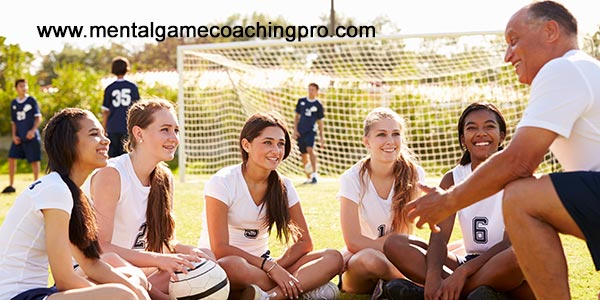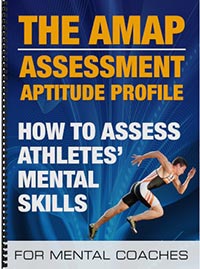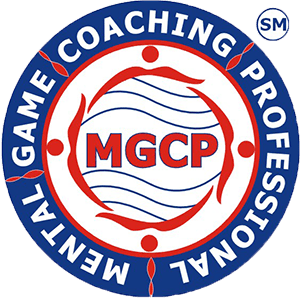
Young Athletes on Their Mental Game
How do you work with younger athletes (ages 8-12) and what tools are helpful when working with them?
This is a question from a mental coach who completed my survey last fall.
I’m sure you know how challenging it is to work with very young athletes on the mental game–if you have had the opportunity…
When young athletes don’t even know what confidence is, how do you explain this to them? Often, these athletes don’t even considered mental training or they know very little about it.
As a mental coach, how can you improve your effectiveness when working with young athletes?
You must first understand the challenges you might face when working with young athletes:
1. Parent-driven. A parent usually wants their athlete to do the mental coaching and you don’t know how motivated the athlete is to do mental training.
2. Limited vocabulary. Young athletes’ limited vocabulary makes it hard for you to communicate the mental game lessons.
3. Memory issues. Young athletes are less likely to remember what you teach them during mental training.
4. Lack of interest. They might be more interested in playing video games or backyard sports with friends then spending their free time working with a mental game coach.
5. Negative labels. Young athletes may feel that something is wrong with them if they have to work with a mental game coach, especially if it’s presented that way by parents.
How can you be more effective teaching the mental game to younger athletes?
I’ve been fortunate over the last few years to work with very young and talented athletes.
Here a few tips that might help you with being more effective with your athletes:
1. Be repetitive. Athletes learn by repetition and the mental game is no different. Repeat the same idea in different ways. If the athlete doesn’t understand focusing on the process, you might talk about being in the moment, thinking about the now, or staying in the present. Ask you athlete to repeat the idea in his or her own words to test understanding.
2. Keep your lingo simple. Young athletes have a limited vocabulary so you want to avoid the use of psychobabble altogether. You don’t want to introduce theories such as the inverted U theory, reversal theory, or RET. Young athletes won’t get it and don’t care.
3. Use analogies they can understand. One motocross athlete understood confidence when I asked him to fuel his brain with “high-test” thoughts just like he fuels his motorcycle with premium fuel.
4. Ask parents to explain a concept in the athlete’s vernacular. I can’t take credit for the above analogy. The idea of using high-test thoughts before a race was provided by a parent helping the athlete understand confidence. Parents know what their athletes can relate to.
5. Keep lessons simple. Chunk the information you teach athletes. If you are working on focusing skills, start with a simple concept, such as staying in the present instead of thinking about the past or future. You might also talk about when they don’t focus on the process.
6. Use review strategies. In the MGCP certification program, I teach coaches how to use session summaries, summary sheets, cheat sheets, audio review programs and other tools to help athletes review, remember, and apply the lesson.
7. Keep your sessions short. Due to the attention span of very young athletes, I suggest you limit sessions to 30 minutes or less. Even in a short 30-minute session, I might spend 10 minutes with a parent on how they might help reinforce the lesson I teach.
8. Test their application. Make sure you find out what your young athletes are applying or trying to use in competition. Do they forget to apply what they learned? Can your athletes use the mental skills in competition? If not, what are the barriers?
You can learn about all of my strategies for working with parents and young athletes in the MGCP Course. To join the course, please contact us to request an MGCP application or fill it out here:
Related Mental Coaching Articles
- One Way to Have Credibility as a Mental Game Coach
- Can You Make a Living as a Mental Game Coach?
- Top Mistakes Mental Game Coaches Make
Mental Coach Assessment System

If you help athletes improve their mental game and want to be more effective with helping them build mental toughness, but don’t have a proven system for identifying and assessing your athletes’ mental game, I can help you…
I view this assessment as a way to “interview” athletes before they come in for coaching–and to improve organization and speed up the coaching process. Today, I call it the Athlete’s Mental Aptitude Profile or AMAP for short. Now you too can learn how to use the AMAP Assessment system with your athletes…
The AMAP System teaches you how to easily identify your athletes’ mental game challenges, what mental game issues to look for when reading the AMAP, and how to do a summary of the AMAP. In addition, you’ll also get follow up questions to ask and how learn about how to drill down on relevant topics.
